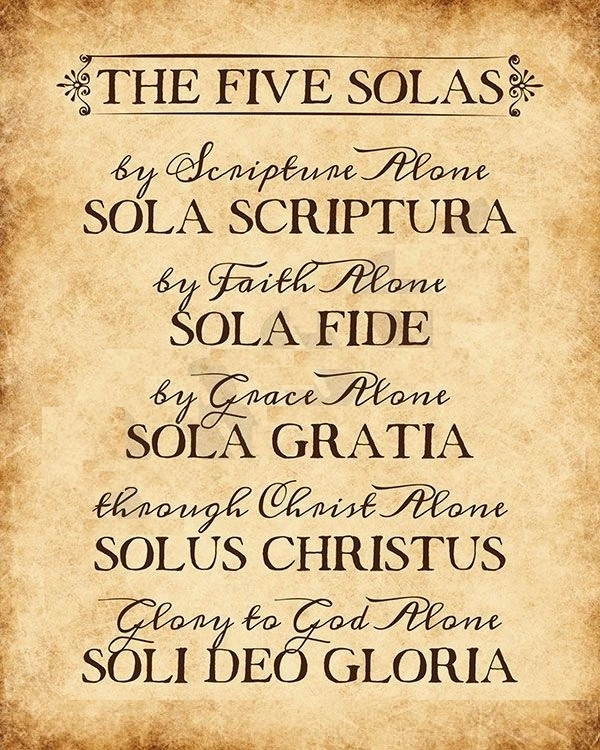There was once a time when the church was headed on a collision course with the dethronement of scriptural authority and spiritual deprivation. Grace-seeking sinners were at the mercy of the papacy, indulgences – cancellations of sin – were sold to the guilt-trodden and many entrusted the wellbeing of their souls to the medium of vain man-made traditions. Lay members of the church, who lived in those dark ages, were misguided by the fatal teaching of works-based salvation, unaware that the precious gem of free grace could be found in the treasure chest of Scripture.
Seeing that the souls of many and that the glory of God was at stake, the Reformers (namely Martin Luther, John Calvin and among others) took it upon their duty to recover the essential teachings of the gospel, by teaching a set of foundational principles that were necessary to understand salvation in Scripture with the highest degree of clarity and faithfulness to the Word. The start of this movement in the 16th century, that challenged the corrupt teachings of the Roman Catholic Church at its time, was known as the Protestant Reformation.
In the 20th century, their teaching and preaching on these chief matters are articulated and systematised in the form of five Latin phrases, commonly known as the Five Solas. These five slogans still have great significance for Christians today, as these fundamental biblical principles set the tone for how Scripture is to be read, how salvation is to be attained and how the pursuit of God’s ultimate purpose – God’s magnification of His glory – is to be maintained.
Zachary Chong, Anthony Lee, Justin Fang, Clement Hui, and I have each written a brief exposition on one of the Five Solas. Click the links below to have a thorough read through all the 5 solas!
Scripture alone (sola Scriptura) – written by John Le
Faith alone (sola fide) – written by Zachary Chong
Grace alone (sola gratia) – written by Anthony Lee
Christ alone (solus Christus) – written by Justin Fang
God’s glory alone (soli Deo gloria) – written by Clement Hui
Further reading
1. R.C Sproul, Willing to Believe (Baker Books 1997)
2. James R. White, Scripture Alone: Exploring the Bible’s Accuracy, Authority, and Authenticity (Bethany House Publishers 2004)
3. Louis Berkhof, Systematic Theology (GLH Publishing 2017)

